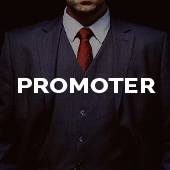The antiquated ways of testing for marijuana in the state of Nevada has officially gone up in smoke.
A watershed moment came of the most recent monthly agenda hearing as held by the Nevada State Athletic Commission (NSAC), whose five-member chairperson panel voted unanimously to no longer offer disciplinary action for combat sport athletes who test positive for cannabis. The matter was presented before the commission in line with a memorandum issued by Nevada deputy Attorney General Edward Magaw on June 28.
“Being the gold standard with regards to MMA and boxing, being a world class destination… we should always be at the forefront of these issues,” Stephen Cloobeck, chairman of the Nevada commission stated prior to offering his vote of approval. “As it is now legal in this state… I think we need to jump forward, being the leader as we’ve always been.”
The ruling officially goes into effect Wednesday and will only apply to test cases moving forward. It will not retroactively remove any current suspensions or disciplinary actions related to the use of cannabis as detected through the current THC threshold of 150 nanograms per milliliter (150 ng/mL).
As decided during a spirited 30-minute discussion preceding the official vote, the threshold will be removed altogether though with the substance to still be tested and records kept for data collection purposes. This distinction was a sticking point for several voting members, who did not want to send the message that the state will allow its athletes to smoke or ingest the substance at will.
“My recommendation is that we continue to test for marijuana but remove the THC threshold for penalty,” specified chairman Anthony Marnell. “It effectively does what you are recommending. I think if we do not test for it, we lose a significant amount of data over a significant period of time that is educational and its doctors, no different to that of brain studies.
“Because it is a drug of abuse, I think we have to hold executive director [Bob] Bennett and the doctors to the same standard as we would if they saw somebody show up to a fight who looked high or drunk. We would not allow them to fight. If we see someone who comes on fight night and is clearly stoned out of their mind, we have to have the courage as the commission to step in and stop that fight.”
The suggestion was welcomed with open arms by NSAC executive director Bob Bennett, citing precedence with other commissions for their handling of the matter. The state of Florida no longer tests athletes for use of marijuana. California and New York continue to test and sanction for uses beyond their designated thresholds, though with penalties having dramatically decreased.
“I’m not aware of other states that currently collect data, but that’s irrelevant,” noted Bennett. “I don’t see any impediment for any reason why we can’t do this efficiently and effectively.”
Per Wednesday’s ruling, such data will be collected and reviewed over a period of 180 days for statistical purposes and studies. The matter was deemed final and not considered to be subject to review barring gross misuse of cannabis, which was recognized by the NSAC as a substance of abuse rather than continuing to classify as a performance enhancing drug.
The large number of suspensions issued by the commission particularly since the pandemic have been cannabis related. In one of the more famous cases, Julio Cesar Chavez Jr. was suspended nine months and fined $900,000 after testing positive surrounding his September 2012 points loss to Sergio Martinez in their lineal middleweight championship clash at Thomas & Mack Center in Las Vegas.
The ruling was vehemently protested by Bob Arum, Chavez’s promoter at the time and a longtime advocate for the removal of disciplinary action against marijuana use.
Wednesday’s ruling put the Hall of Fame promoter in a gleeful mood.
“It’s about time,” Arum told BoxingScene.com. “There was never any reason for marijuana to be a banned substance.
“In truth, it works a lot better for athletes than a lot of medicines prescribed by doctors.”
As of Wednesday, there are two major boxing events scheduled to take place in Nevada.
Tyson Fury (30-0-1, 21KOs) and Deontay Wilder (42-1-1, 41KOs) meet in a trilogy match atop a July 24 Pay-Per-View show presented by ESPN and Fox Sports from T-Mobile Arena in Las Vegas. The same venue will also host a Fox Sports PPV on August 21, headlined by the unified welterweight title fight between unbeaten Errol Spence (27-0, 21KOs) and eight-division champion Manny Pacquiao (62-7-2, 39KOs).
Random drug testing is in place for both bouts. Spence-Pacquiao testing is specifically overseen by the NSAC, who has contracted Voluntary Anti-Doping Agency (VADA) for this particular bout.
Under the new ruling, neither contest nor any of its accompanying undercard bouts will be subject to discipline should any participant test positive for cannabis effective July 7 and moving forward.
Jake Donovan is a senior writer for BoxingScene.com. Twitter: @JakeNDaBox



